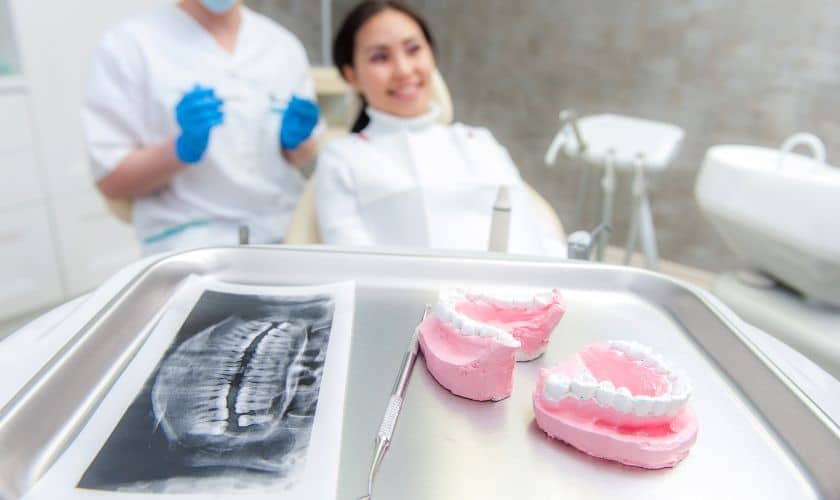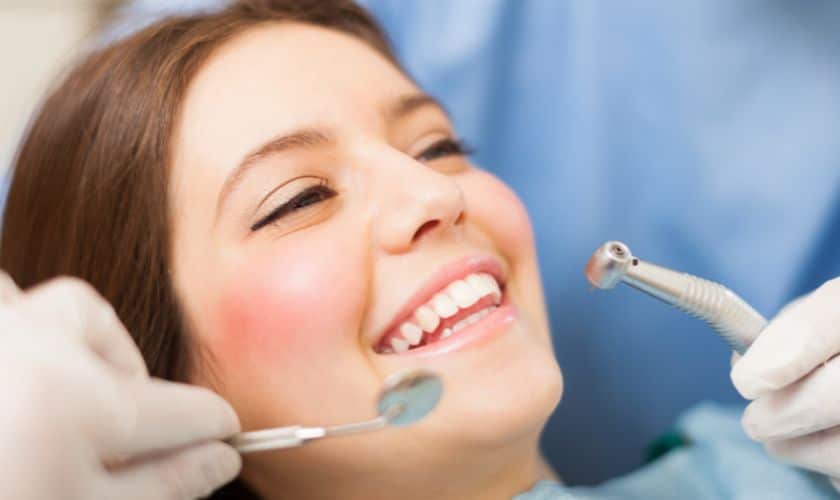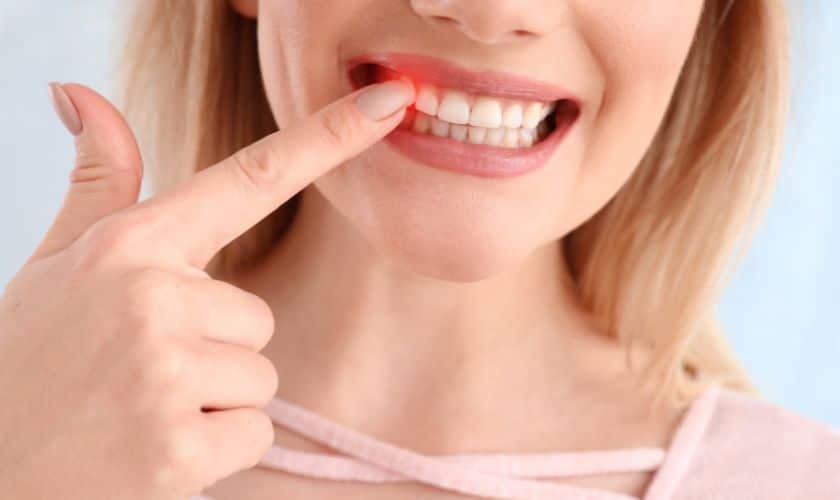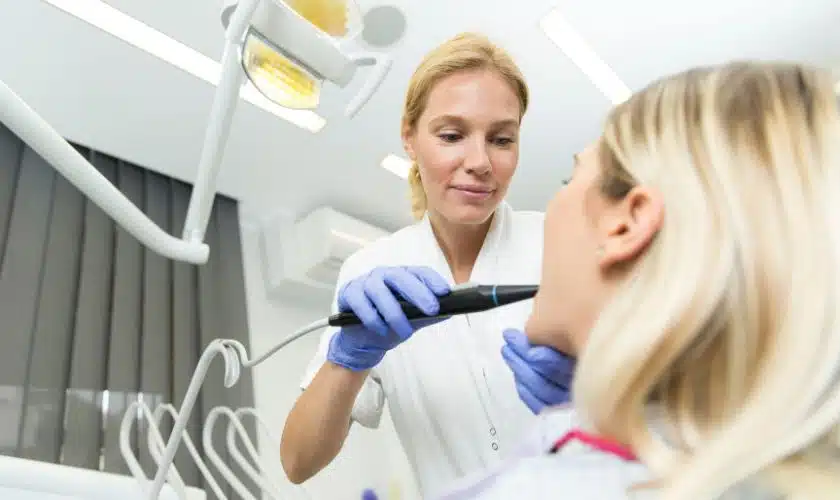
6 Hygiene Tips To Follow While Using Invisalign
Are you using Invisalign to straighten your teeth? Congratulations! You’re on your way to achieving a beautiful, confident smile. However, it’s important to remember that maintaining good oral hygiene is just as crucial with this orthodontic treatment as it is with traditional braces. Practicing proper hygiene may even be easier with Invisalign. Keep reading for our top six tips on how to keep your teeth and aligners clean and healthy throughout the process.
Prepping Your Teeth
Before you start using Invisalign, it’s important to ensure that your teeth are clean and healthy. This will help prevent any complications during the treatment process.
Firstly, schedule an appointment with your dentist or orthodontist for a check-up. They’ll be able to assess your oral health and recommend any necessary treatments before starting Invisalign. This may include filling cavities, fixing chipped teeth, or treating gum disease.
Next, make sure you’re brushing and flossing regularly. Use a soft-bristled toothbrush and fluoride toothpaste to brush twice daily for at least two minutes each time. Floss at least once a day to remove food particles and plaque from between your teeth.
If you have trouble reaching certain areas of your mouth with traditional floss, consider investing in interdental brushes or water flossers.
Avoid sugary drinks and snacks as much as possible. These can cause decay and damage to both your natural teeth and the aligners themselves. Instead, opt for healthier options like fruits, vegetables, lean proteins, and water.
By prepping your teeth properly before starting Invisalign treatment, you’ll set yourself up for success throughout the entire process!
Brushing and Flossing
Brushing and flossing are essential aspects of maintaining proper oral hygiene while using Invisalign. When you wear the aligners, food particles can get trapped between your teeth and aligners, leading to bacteria build-up that can cause bad breath, cavities, or gum diseases.
To avoid this problem, brush your teeth at least twice a day for two minutes each time with fluoride toothpaste. Use a soft-bristled brush to gently clean all surfaces of your teeth and gums. Remember to replace your toothbrush every three months or earlier if the bristles become frayed.
Flossing is also vital in removing food particles from between your teeth that a toothbrush cannot reach. Floss once daily by sliding the floss gently up and down against the sides of each tooth forming a C-shape around them.
It’s important not to rush through brushing or flossing as it may lead to missing some spots in your mouth leaving behind harmful bacteria. Ideally, spend 30 seconds on each quadrant of your mouth when brushing, and take enough time when flossing between every gap carefully.
Remember always rinse out any debris after cleaning with water or an alcohol-free mouthwash for more protection against bacteria buildup in Invisalign trays.
Washing Your Teeth
Washing your teeth is an essential step to ensure good oral hygiene. Along with brushing and flossing, it helps to remove bacteria and food particles that can cause bad breath, cavities, and gum disease.
One of the best ways to wash your teeth is by using a mouthwash or oral rinse. These products help to kill germs in hard-to-reach areas of the mouth where brushing and flossing may not be enough. However, it’s important to choose an alcohol-free mouthwash if you have sensitive gums as alcohol can irritate.
Another option for washing your teeth is with water. Swishing water around in your mouth after eating or drinking can help dislodge any food particles stuck between your teeth. Adding a small amount of salt or baking soda to the water can also provide additional cleaning benefits.
When washing your teeth, don’t forget about cleaning your tongue too! Bacteria tend to accumulate on the surface of the tongue which can lead to bad breath. Using a tongue scraper or toothbrush gently on the surface of the tongue will help remove these bacteria.
Remember, proper dental hygiene is crucial when using Invisalign aligners as it keeps them clean from bacteria buildup which might affect their effectiveness in straightening out one’s smile over time.
Protecting Your Teeth from Cavities
Protecting your teeth from cavities is crucial when using Invisalign. The clear aligners fit snugly over your teeth, making it difficult to thoroughly clean them. This can lead to the buildup of harmful bacteria and plaque, which can cause cavities.
To prevent cavities from forming while using Invisalign, it’s important to maintain good oral hygiene habits. Brush your teeth at least twice daily with fluoride toothpaste for two minutes each time. Ensure you brush every surface of your teeth and pay special attention to the areas around the aligners.
Flossing is also essential in preventing cavities while wearing Invisalign. Use floss threaders or interdental brushes to clean between your teeth and under the aligners where food particles and plaque tend to accumulate.
It’s important to avoid sugary foods and drinks that can increase your risk of developing cavities. If you do indulge in sweets or acidic beverages, rinse your mouth with water afterward or brush if possible.
Regular dental check-ups are vital for maintaining good oral health while undergoing orthodontic treatment with Invisalign. Your dentist will be able to identify any potential issues early on before they become more serious problems like decay or gum disease.
By following these tips, you can protect your teeth from cavities during Invisalign treatment and maintain a healthy smile throughout the process!
Using Invisalign
Using Invisalign is a great way to straighten your teeth without the hassle of traditional braces. One of the best things about Invisalign is that they are nearly invisible, making them perfect for people who want to straighten their teeth discreetly.
When you first get your Invisalign aligners, it’s important to wear them as directed by your orthodontist. This means wearing them for at least 22 hours daily and only removing them when eating or brushing your teeth.
It’s also important to clean your aligners regularly using a soft-bristled toothbrush and mild soap. Avoid using hot water or harsh chemicals on your aligners as this can damage them.
Another tip when using Invisalign is to avoid eating or drinking anything other than water while wearing the aligners. This will help prevent staining and discoloration of both the aligner trays and your teeth.
Make sure to keep up with regular dental check-ups during treatment with Invisalign. Your dentist can monitor your progress and make any necessary adjustments to ensure that you achieve optimal results from treatment.
Post-Invisalign Care
Maintaining good oral hygiene is not only important during Invisalign treatment but it should also be continued after the treatment. Post-treatment care ensures that your teeth remain healthy and that the results of your Invisalign treatment last long.
After completing your Invisalign treatment, make sure to continue brushing twice a day and flossing at least once daily. A Waterpik can also come in handy for those hard-to-reach areas.
It’s important to continue visiting your dentist regularly so they can monitor any changes in your dental health. They may recommend additional treatments like professional cleaning or teeth whitening to maintain optimal oral health.
Following these hygiene tips while using Invisalign will ensure you get the best possible results from the treatment while keeping up with excellent dental hygiene habits. Remember to take proper care of both your aligners and teeth throughout the entire process!
Recent Posts

How Adhesive Techniques Have Improved Denture Fit

How Dentures Can Renew Mom’s Self-Assurance This Mother’s Day

TMJ Treatment: What to Expect During Your Dental Visit

How Stress Affects Gum Health And Strategies For Stress Management

